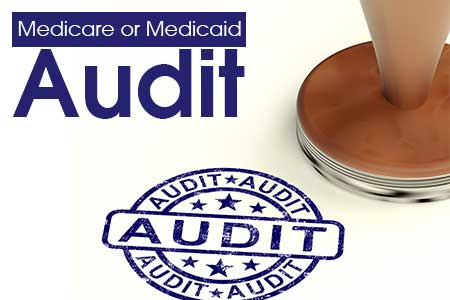Despite the fact that internal auditors have no influence about whether and when they are the subject of a Medicare or Medicaid audit, there are some daily measures that they can take to minimize the probability of negative audit discoveries. Over the last several years, audits have resulted into confrontations and “shouting matches” between auditors and providers—primarily due to lack of clarity on the subject.
Here, we have compiled a to-do list for auditors to stay ahead and avoid documentation discrepancies while presenting audits in a manner that appeal to your provider.
- Present all results to the provider – Validate the audit with correct documentation issues. It will help ensure your office has compliant documentation to survive an audit. It is absolutely essential to finding a way to get through to your providers about audit results and have them truly “hear” what you are saying and then implement a change in their documentation.
- Documentation is essential— It is vital to keep the idea of correct documentation regularly at the forefront of your thoughts and the minds of your staff. Keep in mind that when the auditors go to your office or solicit records and audit them at their own workplaces, they are not going to know what you and your staff did year, a month ago, or even a week ago. The main way they know something happened is whether it is recorded. On the off chance that you bill in light of level of service, make certain that your documentation is satisfactory to legitimize the level of service that you charge. Go through the Medicaid and Medicare manuals deliberately. Pay careful consideration on notification that originate from Medicare or Medicaid. Despite the fact that it might require investment and be bulky, great documentation will certainly be justified in-case an audit happens.
- Do occasional self-reviews—Regularly, audit your very own records to see whether you and your staff are conforming to the different Medicare and Medicaid program prerequisites. In case you discover something incorrect, re-train your staff to the right approach to perform or report the assignment. These intermittent self-reviews not only help you identify goof ups—they are additionally an indication level of confidence in case you are audited.
- Pay careful consideration regarding mark and date prerequisites—Providers are frequently in a rush and neglect to sign or date a treatment plan or advance note. In the event that the signature or date is a system prerequisite, then the auditors are prone to forbid all services that are a piece of that treatment plan or all services given before the arrangement was originally dated. This is an easy target for examiners.
- Try not to be an exception—If you are an anomaly—in sum charged, sorts of techniques, patients seen, and so on— you are substantially more liable to draw investigation from auditors. Clearly, this would not benefit from outside assistance in the event that you are a provider who treats very ill populations, however you will need to work harder than different providers to keep great documentation.
- When in uncertainty, bill down—If you wind up unsure about where it is indistinct as to which of the two codes should be charged, or whether you can charge certain codes independently, and similar quandaries, chances are that the examiners will utilize an understanding that says you should have picked the code that pays the least. In this way, either go with the lowest paying sum, or ideally, get clear guidance from the agency or your legal counsel before you proceed.
For a better understanding of audits and how auditors can be more effective, join expert speaker Jill Young in a Live Audio Session on Thu, May 12, 2016. During this event, Jill will provide you with great tips on how to be successful with your internal audits. Her event with specifically target the one area that auditors struggle with – i.e. the presentation. This session will help ensure that your provider truly hears you when you provide a chart audit.




